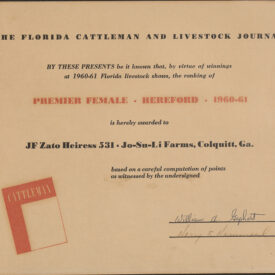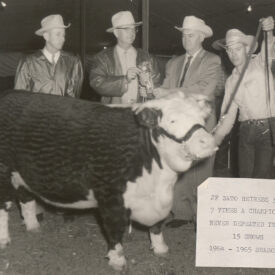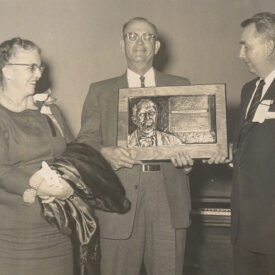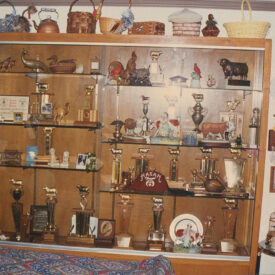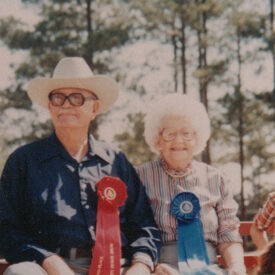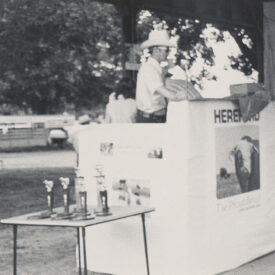Collection Highlight
Cross Family Papers
The Georgia Historical Society (GHS) recently made the Cross Family Papers (GHS 2849) available for research. Owned by the Cross family, Jo-Su-Li Farm is known for having one of the largest pedigree herds of Herefords in the South. As shown in the collection items here, the farm and members of its herd have won many awards over the decades.
“With generous support from the Cross family themselves, who made a financial contribution to help offset the costs of processing the collection, GHS is pleased to announce the availability of the Cross Family Papers,” said Nate Pedersen, GHS Manager of Archival and Reference Team. “The collection documents the rise of an enormously successful Hereford cattle operation in Georgia. The papers primarily detail the operation of Jo-Su-Li Farm. The papers provide interesting insight into the day-to-day operation of a cattle farm in twentieth-century Georgia and offer researchers the ability to examine agricultural history in the state.”
Charles Henley Cross (1859-1951) owned a 430-acre farm in southwest Georgia, selling the land later in his life to his son, Clarence Lewis Cross (1905-1997). Among the youngest of Charles’s twelve children, Clarence grew the farm to 5,500 acres, across Baker and Colquitt counties. He named the farm Jo-Su-Li Farm, after his three children Joe, Sue, and Lillian.
Founded in Herefordshire, England, the Hereford breed stems from an effort to combat the demand of consumer beef during Britain’s Industrial Revolution in the 1700s. Henry Clay, an American politician, introduced the cattle to the United States in 1817 because of a similar need. The cattle were ideal for efficiency, yield, and stability. Sometimes called “the breed you can trust,” they thrive on grass feeding and are known for being calm and gentle.
Learn more about the Cross Family Papers in the GHS collection.

